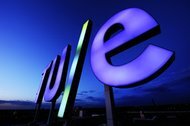
The Intelligent Lighting certificate program is a multidisciplinary training program for bachelor students majoring in any of the disciplines offered in the TU/e bachelor school. It involves a course program of 20 ETCS, multidisciplinary and tailored to the students’ interests and expertise, and a bachelor end project embedded in the Intelligent Lighting Institute.
The lighting domain is changing radically. Three major developments have spurred this revolution: (1) society’s growing awareness of the need to save energy, (2) recent insights in light’s pathways through the brain – the discovery of a 5th photoreceptor - and its impact on human health & functioning, and (3) the introduction of LED, a low power, flexible light source, offering potential for miniaturization, embedding, and advanced dynamic control. All these developments have direct implications for users and society at large.
The Intelligent Lighting certificate thus strives for a multidisciplinary, yet thematically focused training of young engineers.
The certificate reflects that the student has attained:
- Knowledge of light as a physical phenomenon, light sources, and its behaviour in physical spaces
- Knowledge of the perception and human factors of light, and awareness of the multifaceted nature of light’s effects on human functioning
- Basic knowledge of distributed control, operating systems, computer networks, sensors & signal processing,
- Awareness of the challenges for lighting design and control in terms of system transparency and user interaction
Structure
The workload consists of 20 ECTS. An additional requirement is that at least 5 ECTS have to be followed on top of the regular BSc program.
The 20 ECTS are offered in two coherent course programs: the USE trajectory ‘The secret life of light’ and the technical trajectory ‘The liberation of light’. Both consist of 3 sequential courses: an explorative course (identical for the USE and technical trajectory), an advanced course and a project. (This only applies to students with start year 2022 or earlier)
The requirements of the certificate are:
- Successfully obtain (1) the explorative course, (2) both advanced courses, and (3) one project (USE or technical, free choice)
- Doing at least one of the courses over and above the regular study program (in other words extra or on top of the 180 ec of the total BSc program).
Explorative course (5 ECTS):
| Course code | Course name |
| 0HEUA0 | Light & Experience (last examination year 2024-2025) |
Replaced by:
| Course code | Course name |
| 0HV30 | Social and environmental psychology (for students from Built Environment) |
| 7UB1B10 | Healthy & sustainable living environments (for students from Psychology & Technology) |
| Students from other programs can choose 0HV30 or 7UB1B10 |
Advanced courses (10 ECTS):
| Course code | Course name |
| 0HSUA0 | Advancing light for human functioning (last examination year 2024-2025) |
| 7HK30 | Physics of light and lighting design (last examination year 2024-2025) |
Replaced by:
| Course code | Course name |
| 0HVL10 | Healthful environments: light, wellbeing and the biological clock (replacement for 0HSUA0) |
| 7EB1B20 | Physics of light and lighting design (replacement for 7HK30) |
Project course (5 ECTS):
One of the following projects
| Course code | Course name |
| 0HAUA0 | Secret life of light USE project |
| 7HK40 | Liberation of light technical project |
More information about the courses can be found on the Osiris Course catalogue (e.g. content and quartiles)
Pass/fail
The certificate program is successfully completed when the student passes each element of the program with a grade of 6 or higher, or by meeting the specified requirements.
When finishing your bachelor, the certificate can be requested at the education administration with proof of the certificate enrollment, proof of having requested your bachelor diploma, and a study progress document. Email ieis.csa@tue.nl with name and ID number and the mentioned documents.
The successfully completed certificate will be signed by the Dean of the Department of Industrial Engineering & Innovation Sciences.
Direct naar
Downloads
More information
For specific questions, you can contact Yvonne de Kort via the contact form below